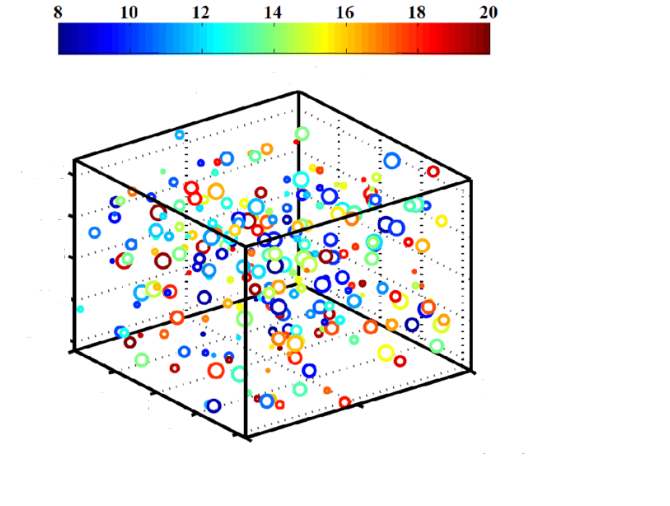
Three di erent sampling techniques are considered: Pseudo-random Sampling, Latin hypercube sampling (LHS), and quasi-monte Carlo using Hammersley Sequence Sampling (HSS) are used in our analysis. Eason and Cremaschi (2014) 10 proposed new adaptive sequential sampling algorithms: the rstModifiedLatinHypercubeSampling.jl.

In the present work, Monte Carlo with pseudo-random samples as well as Latin hypercube samples and quasi-Monte Carlo samples with Hammersley Sequence Sampling (HSS) are generated.The fast development of technologies in the smart grids provides new opportunities such as co-optimization of multi-energy systems. To enhance the model robustness, proper sampling techniques are required to cover the entire domain of the process variables uniformly. The method was applied to an analytical stream depletion problem. To examine the convergence rate of the OA sampling, the results were compared to MCS and LHS. This study shows that OA can be applied to ground water problems. Results reveal that the convergence rate of the OA sampling is faster than MCS and LHS, with a smaller error of estimate when applied to a stream depletion problem.
In this study, we present a stochastic mathematical framework to address both types of these uncertainties according to the innate nature of each uncertain variable, namely: epistemic uncertainty variables (EUVs) and aleatory uncertainty variables (AUVs). Some may lack in term of historical data, and some may have very random and unpredictable behavior. However, the optimal operation of an HFS deals with uncertainties from different sources that do not have similar natures. For instance, an HFS can benefit from energy hubs, renewable energies, and natural gas sources to supply electric vehicles along with natural gas vehicles.
That for differentiable functions the sign of the partial mixed derivative re.Abstract = "The fast development of technologies in the smart grids provides new opportunities such as co-optimization of multi-energy systems. The proposed approach and its applicability are verified using various numerical simulations.McKay, Conover and Beckman introduced Latin hypercube sampling (LHS) for. The proposed framework is employed to address the daily operation of a novel HFS, leading to a two-stage mixed-integer linear programming problem.
The proposed framework is employed to address the daily operation of a novel HFS, leading to a two-stage mixed-integer linear programming problem. Also, the imprecise probability approach is introduced for EUVs utilizing the copula theory in the process, and a scenario-based approach combining Monte Carlo simulation with Latin Hypercube sampling is applied for AUVs. In this study, we present a stochastic mathematical framework to address both types of these uncertainties according to the innate nature of each uncertain variable, namely: epistemic uncertainty variables (EUVs) and aleatory uncertainty variables (AUVs). Some may lack in term of historical data, and some may have very random and unpredictable behavior. However, the optimal operation of an HFS deals with uncertainties from different sources that do not have similar natures. For instance, an HFS can benefit from energy hubs, renewable energies, and natural gas sources to supply electric vehicles along with natural gas vehicles.


Some may lack in term of historical data, and some may have very random and unpredictable behavior. However, the optimal operation of an HFS deals with uncertainties from different sources that do not have similar natures. For instance, an HFS can benefit from energy hubs, renewable energies, and natural gas sources to supply electric vehicles along with natural gas vehicles.
The proposed approach and its applicability are verified using various numerical simulations. The proposed framework is employed to address the daily operation of a novel HFS, leading to a two-stage mixed-integer linear programming problem. Also, the imprecise probability approach is introduced for EUVs utilizing the copula theory in the process, and a scenario-based approach combining Monte Carlo simulation with Latin Hypercube sampling is applied for AUVs.


 0 kommentar(er)
0 kommentar(er)
